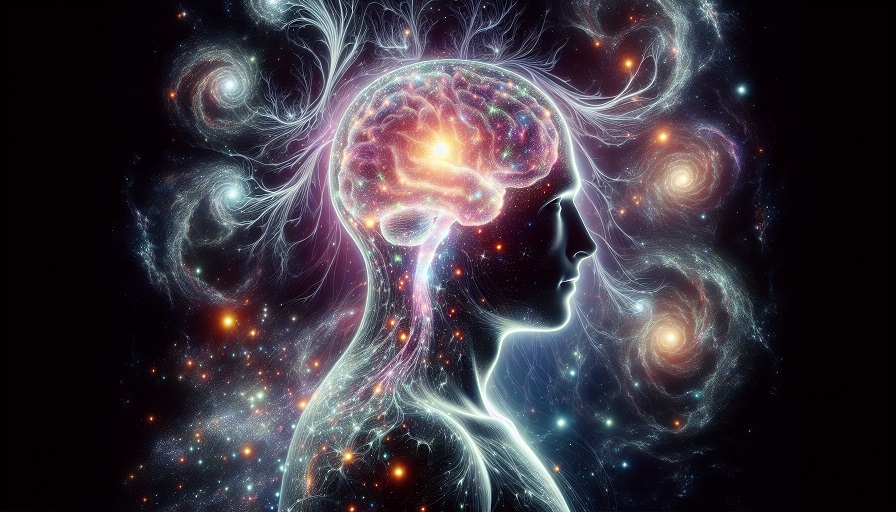
We’ve all heard the advice: “Just think positive.” It’s the emotional duct tape slapped on everything from bad moods to brain fog. Struggling with focus? Be more optimistic. Feeling scattered? Reframe your mindset. But let’s get real for a moment: mental clarity isn’t a matter of attitude. It’s a matter of neurochemistry.
Positive thinking can improve your outlook. But it can’t rebuild your dopamine pathways, balance your acetylcholine, or repair nutrient deficiencies. That foggy, unfocused, low-motivation feeling? It’s not a “bad vibe.” It’s often the result of a brain that’s biologically out of sync.
Contents
The Myth of “Mind Over Matter”
Modern self-help is obsessed with mindset. And yes, mindset matters. But when people confuse mindset with mechanism, they start treating cognitive issues as character flaws. They tell themselves:
- “If I just had more willpower, I’d focus better.”
- “If I were more grateful, I wouldn’t feel this mental fog.”
- “If I stop being negative, I’ll be sharp again.”
This line of thinking is not only unhelpful – it’s inaccurate. Your thoughts can’t override biology. If your brain isn’t firing on all cylinders, no amount of positive affirmation is going to snap it into clarity.
What Mental Clarity Actually Depends On
Mental clarity isn’t magic – it’s measurable. It’s the result of dozens of neurochemical systems working together. When those systems are balanced, everything feels sharper. When they’re off, you can’t think your way out of the fog.
Here are some key biological factors behind clear cognition:
- Dopamine: Regulates motivation, drive, and mental alertness.
- Acetylcholine: Critical for attention span and memory formation.
- Glutamate: Supports learning and neural communication.
- GABA: Keeps excess stimulation in check so thoughts stay focused.
If these chemicals are imbalanced – or if your neurons are starved of the nutrients needed to produce them – clarity will always be out of reach, no matter how cheerful your mindset may be.
Why Positivity Alone Falls Short
There’s nothing wrong with trying to stay optimistic. But when it becomes the only tool in your kit, it leads to false conclusions:
- Blaming yourself for feeling foggy or slow
- Overlooking physical causes like poor sleep, undernutrition, or stress
- Ignoring the need for biological support
Worse, positivity culture can make people gaslight themselves. They think, “I should be able to push through this,” even when their brain is clearly struggling on a chemical level.
Mental clarity isn’t a mindset problem. It’s a systems problem.
Common Neurochemical Clarity Killers
If you’re struggling with mental fog, it’s worth looking at what’s happening beneath the surface. Some of the most common clarity killers include:
- Nutrient deficiencies: Low B vitamins, magnesium, and omega-3s impact neurotransmitter production and brain energy.
- Chronic stress: Elevated cortisol disrupts memory, shrinks the prefrontal cortex, and impairs focus.
- Poor sleep: Sleep deprivation decreases synaptic efficiency and slows recall speed.
- Blood sugar crashes: Fluctuating glucose levels cause mental fatigue and irritability.
These are not mindset issues. They’re metabolic issues. And they need to be treated as such.
How to Restore Clarity from the Inside Out
Instead of trying to think your way to better cognition, support your brain with what it actually needs:
1. Eat to Feed Your Neurotransmitters
Focus on protein (for amino acid precursors), healthy fats (for myelin and brain structure), and leafy greens (for methylation and detox pathways). Ditch the ultra-processed, sugar-heavy foods that sabotage brain function.
2. Improve Sleep Quantity and Quality
Aim for consistent, uninterrupted sleep in a dark room. Use magnesium or melatonin if needed, and avoid screens for at least an hour before bed.
3. Challenge Your Brain Daily
Learning, problem-solving, and mental stimulation trigger neuroplasticity. The brain that’s regularly used stays clearer and faster.
4. Use Targeted Nootropic Support
If your brain’s baseline is off, consider using nootropics to restore neurochemical balance and enhance clarity in a sustainable way.
The Role of Nootropics in Cognitive Clarity
Unlike mood-boosters or stimulants, nootropics are designed to support long-term brain function by nourishing the pathways that keep you clear-headed, focused, and sharp.
Here are a few standout nootropics for clarity:
- Citicoline: Enhances acetylcholine production, boosts brain energy, and improves focus and memory.
- L-Theanine: Promotes calm alertness and balances excitatory neurotransmitters for smoother, clearer thinking.
- Rhodiola Rosea: Helps the brain adapt to stress and prevents cognitive fatigue.
- Bacopa Monnieri: Supports recall and information retention while protecting against oxidative stress.
A smart blend like Mind Lab Pro brings these ingredients together into a cohesive formula that supports how your brain works – not just how you feel.
Positivity has its place. It can help you stay grounded, resilient, and open-minded. But if your brain is underpowered, undernourished, or chemically imbalanced, you won’t think your way to clarity.
Mental clarity starts in the synapses, not in your attitude. If you really want to feel sharp again, start treating your brain like the biological powerhouse it is. Feed it. Rest it. Challenge it. And support it with the right tools.
Because clarity isn’t about smiling through the fog. It’s about making sure the lights in your brain are actually turned on.

